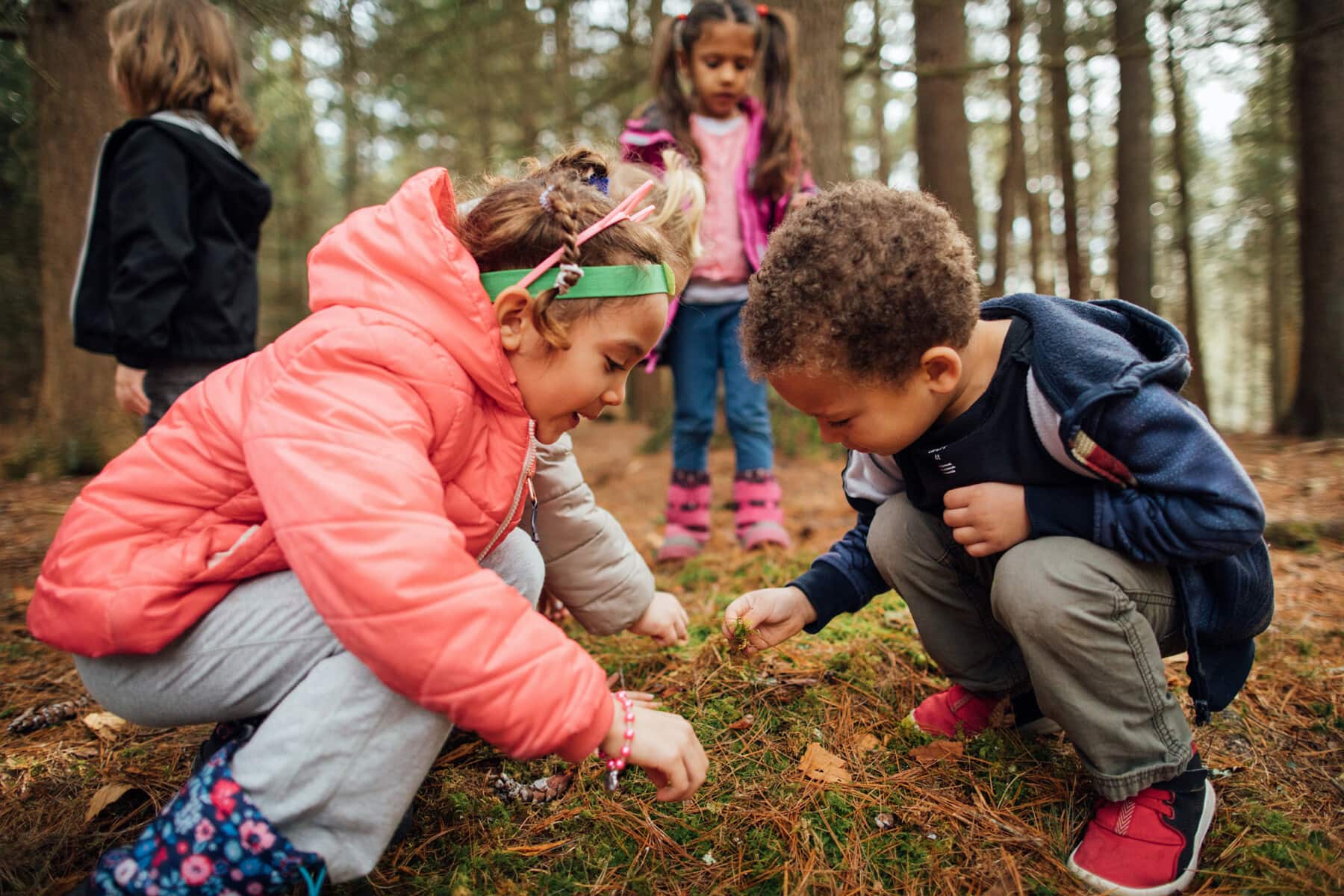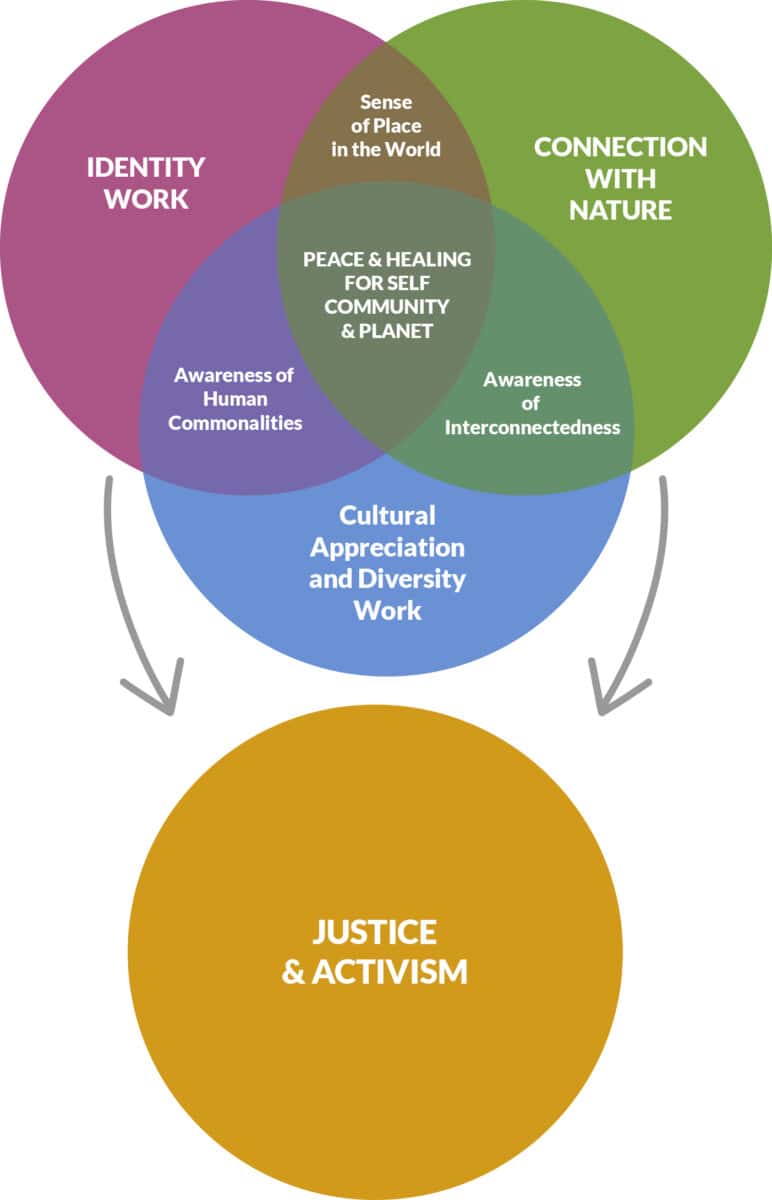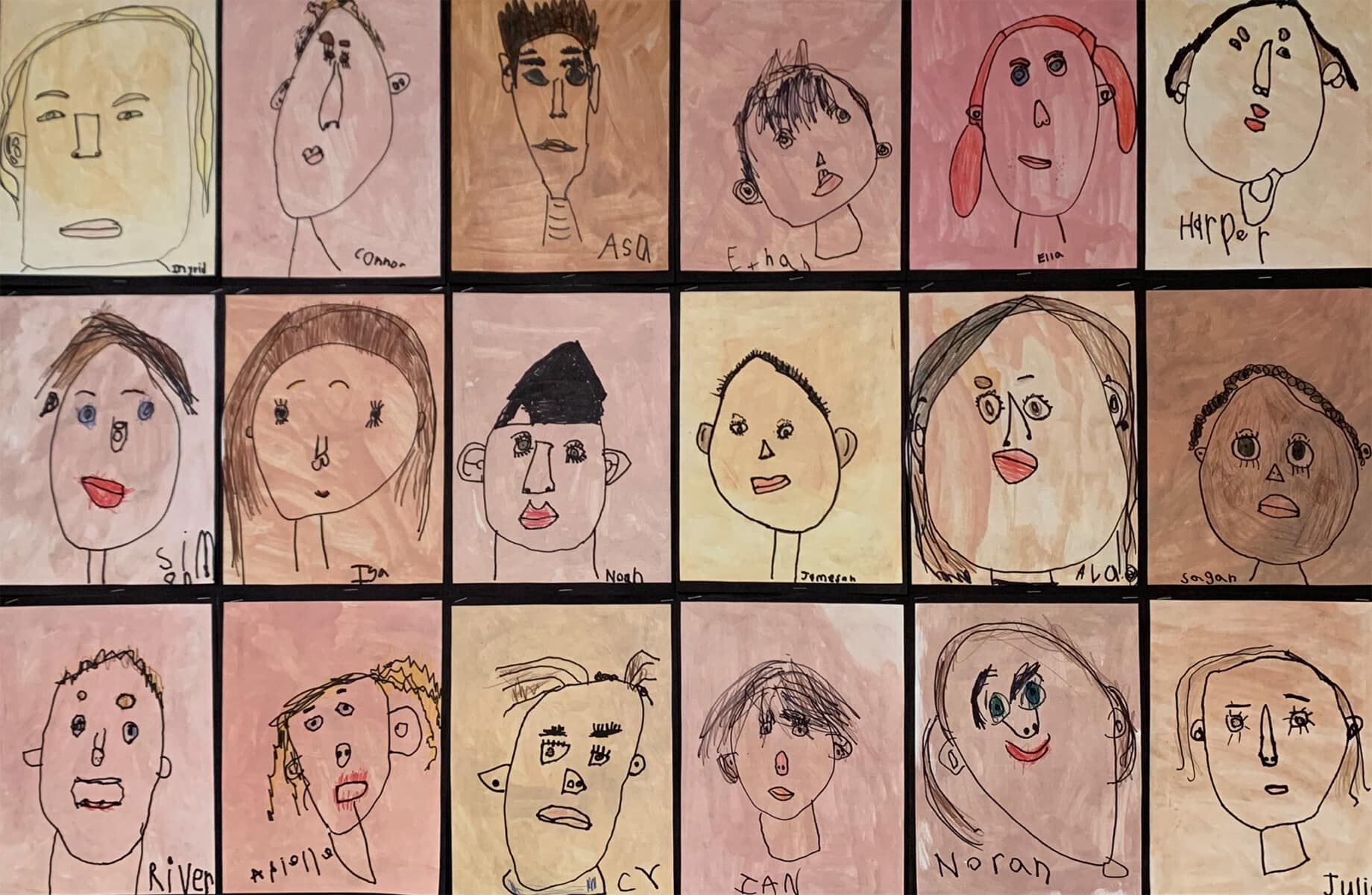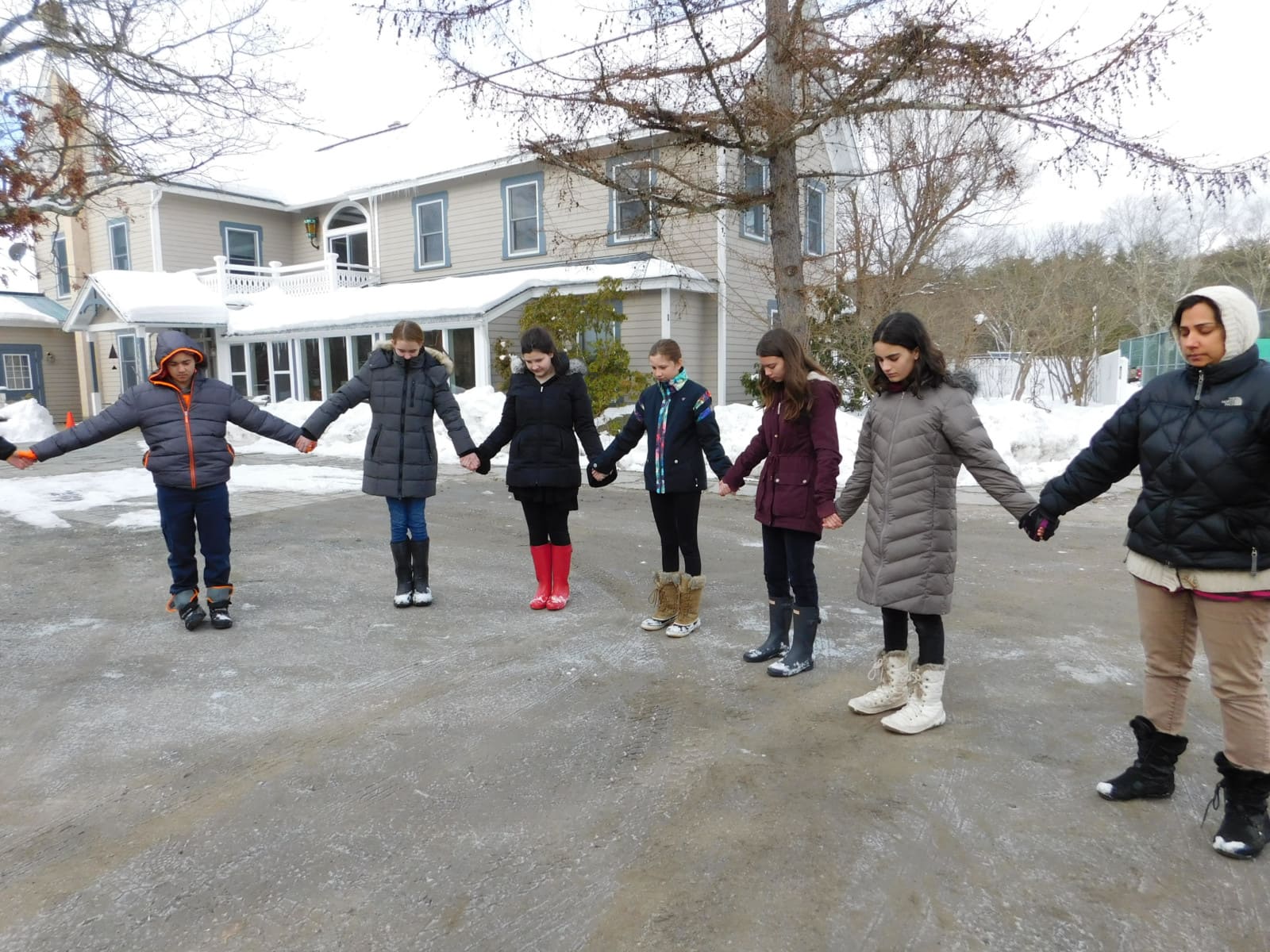Applications for the 24-25 school are open. Schedule a tour now!

An education capable of saving humanity is no small undertaking; it involves the spiritual development of humans, the enhancement of their value as individuals, and the preparation of young people to understand the times in which they live. – Maria Montessori
The mission of the Homestead School is and remains “to nurture self-motivated students whose love of learning will carry through into a lifetime of responsible and constructive contributions to the well-being of their fellow humans and the Earth.” One of the ways we seek to do this is through cultivating a culture of inclusion and celebration of the diversity of human experience as it is embodied in our cultural backgrounds, our physical characteristics, and our ways of being in the world. In alignment with Montessori’s vision for a peaceful world, the Homestead’s curriculum from early childhood through high school is rich in perspectives, works to examine and deconstruct the dominant narrative, and allows students to find reflection and validation in the learning environment.
We understand our environmental and social issues arise from the same cultural mentality that has developed over the course of human history. This mentality stems from the idea that humans stand outside of nature and must be in command of their environment. Our goal is to reunite with our roots and find a foundation in nature to validate and express our common humanity. At Homestead School, we foster a strong sense of self which leads to meaningful connections with others in nature. We maintain a culture that welcomes, recognizes, and celebrates diversity in all of its forms, including, but not limited to, diversity of socio-economic background, culture, physical appearance, race, national or ethnic background, gender, gender identity, gender expression, sexual orientation, family structure, religion, perspective, physical disability, learning style, linguistic difference, and age.
Charles Eisenstein states, “Doing what you love is what creates genius.” We would add that doing what you love, as your authentic self is what unlocks genius, so Homestead’s goal is to provide the environment in which children have the space and opportunity to discover and celebrate their authentic self and discover what they love through hands on, experiential learning in an environment that offers deep connection to nature, one’s self, and one’s community members.
Teachers will foster a deep love for and appreciation of nature through ample opportunities to explore the Homestead campus and the Montessori curriculum. Children will develop a respect for nature and a sense of stewardship towards the earth.
Teachers will nurture each child’s construction of knowledgable, confident, individual personal and social identities. Children will demonstrate self-awareness, confidence, family pride, and positive social identities.
Teachers will promote each child’s comfortable, empathetic interaction with people from diverse backgrounds. Children will express comfort and joy with human diversity, use accurate language for human differences, and form deep caring connections across all dimensions of human diversity.
Teachers will foster each child’s capacity to identify bias critically and will cultivate each child’s ability and confidence to stand up for oneself and others in the face of bias. Children will increasingly recognize unfairness and will demonstrate a sense of empowerment and the skills to act, with others or alone, against prejudice and discriminatory actions.
* Adapted from Louise Derman-Sparks’ goals of anti-bias education.

“We must take the child themself, take them with patience and confidence, across all the planes of education. We must put everything before them, the school, culture, religion, the world itself. We must help them to develop within themself that which will make them capable of understanding. It is not merely words, it is a labour of education. This will be a preparation for peace – for peace cannot exist without justice and without humans endowed with a strong personality and a strong conscience.”
-Maria Montessori, Citizen of the World, p. 38
Peace is not passive. It is actively pursued through Homestead’s implementation of an Inclusivity Curriculum. This type of education leads to a culture of creating just environment, advocating for justice, and activism toward peace.

As a child enters the Elementary years, their sense of self is developing strongly- where do I fit in within my community? Am I safe in this community? This is why Montessori’s Cosmic Curriculum is introduced at this age level. As they develop their sense of self, they look at peers to see where they belong and how they fit in. Our goal is to offer a safe space for a child to develop into whomever they are. In the Elementary Program, more opportunities arise for social learning. We achieve this through:
Teens are already talking about bias, inequity, and how to be true to one’s self with external pressures. At CCHS, students examine different forms of media, cultural narratives, and social institutions to understand and identify the messages, policies, and mindsets that perpetuate bias and inequality. As students gain understanding and voice, they learn to become storytellers, helping to tell a new story that celebrates humanity’s purpose and a deep sense of the value and beauty of all of our relations.

Service work, business curriculum, and studies of regenerative science and technology allow students to become active change agents, helping to address the underlying alienation from nature that is at the root of our disconnection from one another. As they begin the process of healing the soil and ecosystems in their own backyards and communities, they initiate the process of deeper cultural healing and evolution.